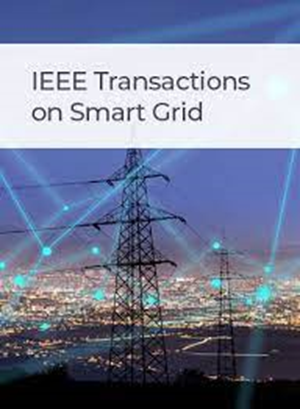智能电网中数据驱动热水器模型的分布式深度强化学习
IF 8.6
1区 工程技术
Q1 ENGINEERING, ELECTRICAL & ELECTRONIC
引用次数: 0
摘要
在需求响应应用中使用电热水器集群显示出巨大的潜力。然而,个体用户的多样化消费模式对传统的单模型控制策略提出了挑战。为了解决这个问题,我们提出了一种分布式强化学习(DRL)策略来管理EWHs,以增强可扩展性、适应性和用户满意度。我们的方法使用数据驱动模型来捕获EWH操作中的变化,并基于相似的消费行为对用户进行集群。对每个集群进行离线预训练,然后进行个人在线培训以适应用户偏好。这种分布式框架支持集群内的知识共享,减少了培训时间,并提高了集中式系统的可伸缩性。我们的方法有效地适应了用户的可变性,平衡了系统范围和个人目标。实验表明,显著峰值需求减少和提高用户舒适度。与传统的基于恒温器的控制器相比,我们的方法降低了38%的成本。此外,与遗传算法(GA)和二进制粒子群算法(BPSO)相比,该方法具有更好的实时适应性和负载转移性能,为需求响应管理提供了有效的解决方案。本文章由计算机程序翻译,如有差异,请以英文原文为准。
Distributed Deep Reinforcement Learning for Data-Driven Water Heater Model in Smart Grid
The use of clusters of electric water heaters (EWHs) in demand response applications shows great potential. However, the diverse consumption patterns of individual users pose challenges for conventional single-model control strategies. To address this, we propose a distributed reinforcement learning (DRL) strategy for managing EWHs that enhances scalability, adaptability, and user satisfaction. Our approach uses a data-driven model to capture changes in EWH operation and clusters users based on similar consumption behaviors. Offline pre-training is performed for each cluster, followed by individual online training to adapt to user preferences. This distributed framework enables knowledge sharing within clusters, reducing training time and improving scalability over centralized systems. Our method effectively accommodates user variability, balancing system-wide and individual objectives. Experiments demonstrate significant peak demand reductions and enhanced user comfort. Compared to traditional thermostat-based controllers, our method reduces costs by 38%. Additionally, compared to genetic algorithms (GA) and Binary Particle Swarm Optimization (BPSO), our proposed method demonstrates better performance in real-time adaptability and load shifting, providing an efficient solution for demand response management.
求助全文
通过发布文献求助,成功后即可免费获取论文全文。
去求助
来源期刊

IEEE Transactions on Smart Grid
ENGINEERING, ELECTRICAL & ELECTRONIC-
CiteScore
22.10
自引率
9.40%
发文量
526
审稿时长
6 months
期刊介绍:
The IEEE Transactions on Smart Grid is a multidisciplinary journal that focuses on research and development in the field of smart grid technology. It covers various aspects of the smart grid, including energy networks, prosumers (consumers who also produce energy), electric transportation, distributed energy resources, and communications. The journal also addresses the integration of microgrids and active distribution networks with transmission systems. It publishes original research on smart grid theories and principles, including technologies and systems for demand response, Advance Metering Infrastructure, cyber-physical systems, multi-energy systems, transactive energy, data analytics, and electric vehicle integration. Additionally, the journal considers surveys of existing work on the smart grid that propose new perspectives on the history and future of intelligent and active grids.
 求助内容:
求助内容: 应助结果提醒方式:
应助结果提醒方式:


